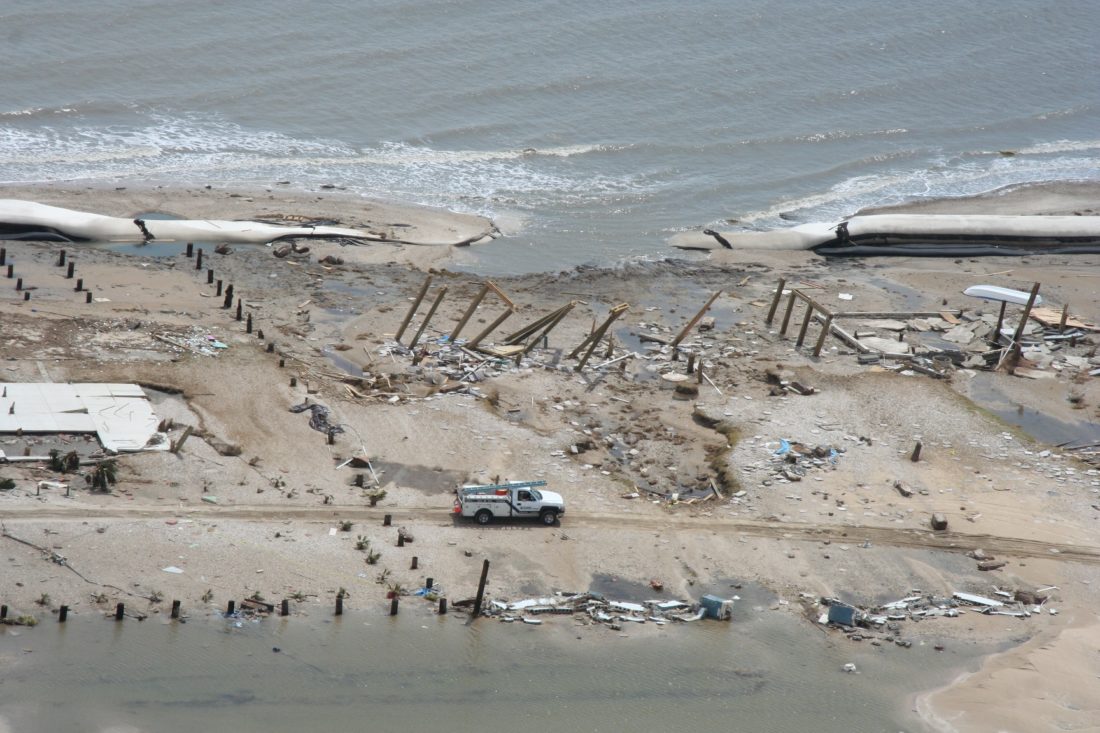A Massachusetts conservation group says it will sue ExxonMobil for failing to protect the Boston harbor area from an old, leaky oil terminal that spews toxic material into nearby rivers, charging that the company’s dual role of climate change expert and denier makes it uniquely culpable.
The landmark action by the Conservation Law Foundation is apparently the first to link a fossil fuel company’s policy on global warming to a particular, localized environmental threat.
At issue is ExxonMobil’s Everett marine terminal, an oil transfer and storage facility – a tank farm with three berths for ships to dock – a few miles northwest of Boston at the junction of the Mystic and Island End rivers.
The terminal and surrounding area are built on landfill, which is at or close to sea level, and will be completely submerged in the foreseeable future as sea levels rise due to global warming, according to Bradley Campbell, president of the Conservation Law Foundation, which sent ExxonMobil a notification letter yesterday alleging numerous violations of clean water and environmental laws at the Everett facility, a required first step before it files a lawsuit in federal court.
Rain and Toxins
Campbell noted that ExxonMobil put its expertise on global warming to work in taking measures to protect its off-shore oil rigs and other assets. This followed a corporate research program beginning in the late seventies that proved warming was occurring and outlined specific threats.
Yet the company has done nothing to safeguard the sizeable population of the greater Boston area from the toxic hazard at Everett, CLF charges. Campbell noted that intense storms that deposit two inches or more of rain during a 24 hour period are 70 percent more frequent in the northeast than in the recent past.
“In any intense rain period, the water treatment center at this facility is overwhelmed,” Campbell said, explaining that when that happens, petroleum products and toxic material already in the soil pour into the Mystic river. These spills have the most immediate impact on the communities nearest to the terminal, most of which are lower-income.
CLF’s notification letter lists 44 chemicals that have accumulated in the soil over decades of operations around the Everett terminal – a who’s who of toxic and carcinogenic compounds that includes cyanide, toluene, benzene, cadmium, chromium, lead, arsenic, mercury and xylene.
The soil is only one of several hazards at Everett. Another is the potential for a severe storm to cause one of the petroleum storage tanks to collapse, which happened during Hurricane Katrina in New Orleans. Such an accident would send oil all the way into Boston harbor, according to CLF.
“This is where Exxon’s climate policy really hits home for a local community,” said Campbell.
Corporate Priorities
CLF’s notification letter ties together ExxonMobil’s dual history of climate denial and scientific study of the global warming problem with its alleged negligence at Everett.
The group accuses the oil giant of engaging “in a decades-long scheme to conceal and sow doubt regarding the effects of climate change and your role, as the largest oil refiner on the planet, [in] causing the anthropogenic climate change that is resulting in a great frequency of storm surges and extreme weather events and rising sea levels.”
The letter charges that ExxonMobil’s federally-mandated plan for preventing stormwater pollution from Everett “was not prepared in accordance with good engineering practices because it is not based on consideration of climate change information known to ExxonMobil.”
Why would the company protect drilling rigs but not an oil and gas terminal?
“I think it’s a dollars and cents issue for Exxon,” said Campbell. “This type of facility is only marginally profitable for them compared to other assets like pipelines or drilling platforms on the open ocean. So they don’t really care about it.”
ExxonMobil has 60 days to respond to CLF’s letter.

